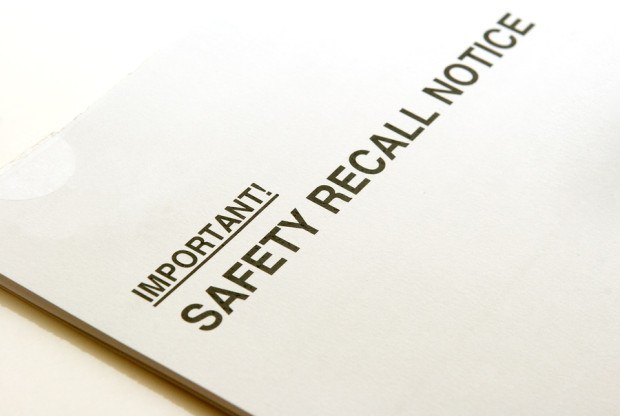Japan’s Takata Corp declared nearly 14 million air bag inflators defective as part of an expanded U.S. recall, but it said it considered the recall investigative, leaving the thorny question of cost-sharing with automakers unresolved.
The question of just how much Takata will have to pay for a deepening crisis over potentially deadly airbags has been hanging heavily over the firm, with management saying that can be worked out only when there is clarity on the root cause of the problem.
Until now, automakers have launched what are called investigative recalls, where they collect parts to determine the reasons for the defects. Under such recalls, automakers bear most of the burden, although Takata is widely expected to shoulder more.
The airbags have the potential to inflate violently, spraying metal shrapnel in the vehicle and have been blamed for 13 deaths and more than 100 injuries, mainly in the United States.
The company’s woes worsened this month with U.S. authorities announcing a recall of up to 40 million more of the company’s air bags, on top of the more than 50 million that have already been recalled globally.
Monday’s notice to remove 14 million inflators is the first part of the expanded recall.
Takata spokesman Toyohiro Hishikawa said that the company considers the newly announced recall investigative and reiterated the company ‘s stance that it is waiting until a study it commissioned presents its conclusions in the summer.
But Hishikawa added the company “generally agrees” with the National Highway Traffic Safety Administration’s assessment that a combination of time, environmental moisture and fluctuating high temperatures contribute to the degradation of the ammonium nitrate propellant in the inflators.
“But we can’t say that our assessments match NHTSA’s 100 percent because we have yet to make our own conclusions,” he said.
If Takata was found to be solely responsible for the problem, it could face a bill of more than $9 billion in recall costs, based on a rough calculation that each replacement kit costs around $100.
Sources have said the company has begun looking for a financial backer to help with the recall costs.
Takata also faces lawsuits and on Friday, Hawaii became the first U.S. state to sue the auto parts maker, accusing it and Honda Motor Co of covering up the problem and demanding $10,000 in compensation for every affected car.
Takata declined to comment on the Hawaii lawsuit. Honda also declined to comment, saying it had not be served with the lawsuit. (Additional reporting by Bernie Woodall in Detroit.)





















 Focus on Ski Guides After Deadly California Avalanche Could Lead to Criminal Charges, Civil Suits
Focus on Ski Guides After Deadly California Avalanche Could Lead to Criminal Charges, Civil Suits  Machine Learning for Mutuals: What’s Working, What’s Not, and What’s Next
Machine Learning for Mutuals: What’s Working, What’s Not, and What’s Next  Teens’ First Year on the Road Most Deadly
Teens’ First Year on the Road Most Deadly  Is Risk the Main Ingredient in Ultra-Processed Food?
Is Risk the Main Ingredient in Ultra-Processed Food? 







